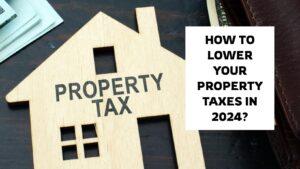What is a Rental Property Insurance?
Rental property insurance is a type of insurance policy designed to protect property owners who rent out their properties to tenants. It provides coverage for damages or losses to the rental property caused by certain perils, such as fire, theft, vandalism, and natural disasters. Additionally, rental property insurance can provide liability coverage, which protects landlords from legal claims and lawsuits brought by tenants or other third parties who suffer injuries or property damage while on the rental property.
The coverage provided by rental property insurance typically includes the physical structure of the rental property, as well as any personal property that is owned by the landlord and kept on the property for tenant use, such as appliances, furniture, and fixtures. Some rental property insurance policies may also cover lost rental income if the property becomes uninhabitable due to a covered loss.
It's important to note that rental property insurance is different from renters insurance, which is designed to protect the personal property of tenants rather than the property itself. If you own a rental property, it's important to consider purchasing rental property insurance to protect your investment and financial interests.
Understanding Rental Insurance Coverage Options
Rental property insurance is essential for landlords who want to protect their investments from unexpected losses and liabilities. There are several types of coverage available with rental property insurance, each of which is designed to provide protection for different risks that landlords may face.
One of the most important types of coverage is property damage. This coverage helps landlords pay for repairs or replacement of their rental property if it is damaged by a covered event, such as a fire, storm, or vandalism. This coverage is essential for landlords because repairs to rental properties can be expensive, and damage can lead to lost rental income [1].
Another important type of coverage is liability insurance. This coverage helps landlords pay for legal fees and damages if a tenant or visitor is injured on their property. Liability insurance can also cover damages caused by a tenant’s actions, such as if they accidentally start a fire. Without liability insurance, landlords could be personally responsible for these costs, which could be financially devastating [2].
Finally, rental property insurance can also include coverage for lost rental income. This coverage provides landlords with compensation if their rental property is uninhabitable due to a covered event, such as a fire or flood. This coverage can help landlords pay their mortgage and other expenses while repairs are being made [1].
It is important for landlords to understand which types of coverage are included in their rental property insurance policy and which types of coverage may be necessary to add. Depending on the specific risks that a landlord faces, additional coverage may be required to fully protect their investment.
Choosing the right rental property insurance policy can be challenging, especially for first-time landlords. There are many factors to consider, including the size and type of property, location, budget, and specific risks that need to be covered. Here are some tips for choosing the best rental property insurance policy:
- Understand the coverage options: As discussed in the previous section, there are several types of coverage available with rental property insurance. It is important to understand what is included in a policy and which types of coverage may be necessary to add based on the specific risks a landlord faces.
- Shop around: It is important to compare policies and prices from several different insurance companies before choosing a policy. This can help landlords find the best coverage for their budget and specific needs.
- Consider the deductible: The deductible is the amount that a landlord must pay out of pocket before insurance coverage kicks in. A higher deductible will generally result in a lower monthly premium, but it may also mean higher out-of-pocket costs in the event of a claim.
- Look for discounts: Some insurance companies offer discounts for landlords who have multiple properties, have installed safety features in their rental properties, or have a good claims history. It is important to ask about discounts when shopping for insurance.
- Work with an insurance agent: An experienced insurance agent can help landlords understand their options and choose the best policy for their needs. They can also provide guidance on how to reduce risks and prevent claims.
How to Choose the Right Insurance for Your Rental Property?
The number one goal of your rental business should be to make money, not give it away. One way to protect you and your investment is to have proper insurance in place. Let me introduce you to four insurances that you should consider.
A Good Lease
The first insurance that I possess is the insurance of a good lease and a thorough move-in inspection. More than once I have referred to the pictures of a move-in inspection to counter a tenant's claim about a pre-existing condition. I remember one time during a preliminary move-out inspection I noted a cracked ceramic floor tile. The tenant claimed that it was like that when they moved in.
I turned on my laptop, pulled up the appropriate picture from the move-in inspection, and proved to the tenant that the crack was not there when they moved in. The next insurance that I possess is the kind purchased from my friendly neighborhood insurance professional. However, take note that there is more to consider than just regular old homeowner's insurance. There are several kinds of insurance that you want to consider as a landlord.
Property Insurance
When it comes to insuring my personal rental properties, I have a landlord policy on each rental unit that I own, whether that unit is paid off or not. Landlord policies have the added benefit of additional liability protection for the landlord. You also need to ensure that each policy carries sufficient coverage to satisfy your mortgage lender.
Depending upon your rental's geographic location, there are some additional property insurance policies you may want to consider. In California, many people have earthquake insurance. In other areas, you may want to investigate flood insurance. Your insurance professional can educate you on the particular hazards you might wish to insure against for your area.
Umbrella Insurance
The third insurance that I have is an umbrella policy, which acts like an umbrella over all of my other existing insurance policies. Examples of when this coverage may come into play include when a guest of your tenant slips and falls in one of your rental properties and is severely injured, or when a storm occurs and a neighbor's property is damaged by a tree falling from your property.
Your landlord insurance policy has a liability limit. The umbrella policy picks up after those limits are exhausted and therefore usually carries a very high deductible, $300,000 or higher. Those deductibles seem high until you are sued for $750,000 and lose. In this example, the first $300,000 would be picked up by your primary insurance; the balance of $450,000 would be yours to pay. An umbrella policy helps pay that off. Otherwise, virtually everything you own would be a fair game against that judgment.
Renter's Insurance
The fourth insurance is renter's insurance. Remind your tenants that their personal property and vehicles, or those of their guests, are not covered by any of your insurance policies against loss or damage due to fire, theft, vandalism, rain, water, criminal or negligent acts of others, or any other cause. Coverage for those items comes only through a renter's insurance policy.
Renters' insurance traditionally covers the tenant's and any guest's possessions, like furniture, clothes, computers, and bikes. Additionally, if a plumbing backup floods your property and renders it uninhabitable, the renter's insurance may cover the cost of a temporary place to live until the tenant can move back into your property. Some renter's insurance policies may also have protection for the tenant against lawsuits.
You should always require renter's insurance when the tenant has a pet in the residence. You do not want the tenant's dog biting a neighboring kid and then have the neighbor sue you. At my office, we will not allow tenants to receive keys without proof of a paid-in-full renter's insurance policy. If the tenant does not have a policy at the time of lease signing, we make the tenant call an insurer and obtain one on the spot.
Insurance is all about risk management; you buy or require insurance to manage some of those risks. Knowing your real estate laws is the best defense. After that, obtaining the insurance discussed in this article is an intelligent way to begin managing your risk. By following these tips, landlords can find the best rental property insurance policy to protect their investment and provide peace of mind.









